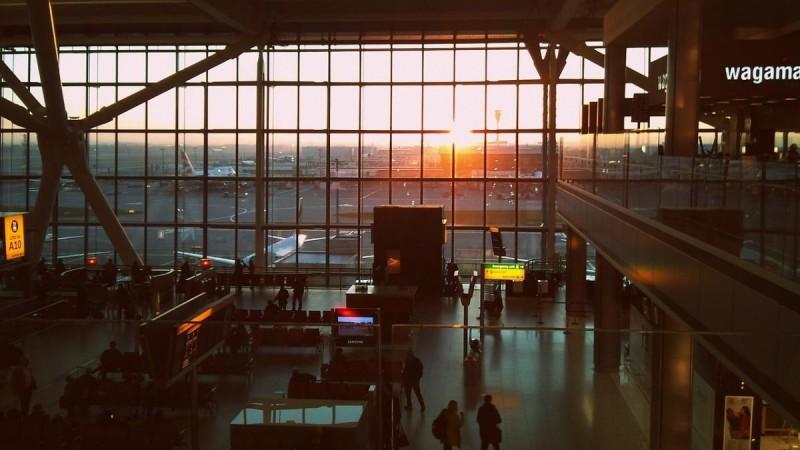Some 25 million jobs are at risk of disappearing with plummeting demand for air travel amid the COVID-19 crisis, says an analysis by International Air Transport Association (IATA).

The livelihoods of about 65.5 million people globally are dependent on the aviation industry, including travel and tourism sectors. Of this, 2.7 million are jobs in airlines. Considering severe travel restrictions and ban have been imposed by Governments for the next three months, IATA research calculates that 25 million jobs in the aviation and related sectors are endangered across the world:
- 11.2 million jobs in Asia-Pacific
- 5.6 million jobs in Europe
- 2.9 million jobs in Latin America
- 2.0 million jobs in North America
- 2.0 million jobs in Africa
- 0.9 million jobs in the Middle East
In this socio-economic scenario, airlines will see full-year passenger revenues fall by $252 billion (drop by 44%) in 2020 compared to 2019. The second quarter being the most crucial for aviation business, demand will fall 70% at its worst point, and the airline sector will burn $61 billion in cash.
Airlines are calling on governments to provide immediate financial aid to help airlines remain viable businesses, able to lead the recovery when the pandemic is contained. Specifically, IATA is calling for direct financial support, tax relief, loans, loan guarantees and support for the corporate bond market.
"There are no words to adequately describe the devastating impact of COVID-19 on the airline industry. And the economic pain will be shared by 25-million people who work in jobs dependent upon airlines. Airlines must be viable businesses so that they can lead the recovery when the pandemic is contained. A lifeline to the airlines now is critical," said Alexandre de Juniac, IATA's Director General and CEO.
Impact of Covid-19 on the airline industry
The impact of COVID-19 on the global aviation industry continues to be devastating. The industry is burning through cash at a dangerous rate with $61 billion that could disappear from cash reserves Q2 alone. With a decrease in demand, low by 70% globally compared to 2019, and low by 90% in Europe, the situation could get worse with days passing by.
Speaking at the IATA Media Briefing on COVID-19, Alexandre de Juniac said, "If aviation is not functioning, the economic damage goes well beyond the sector itself. Some 65. 5million jobs are linked to aviation. If the planes don't fly, the viability of many of these jobs disappears. And if global supply chains are broken, still others in manufacturing or retail will not have anything to make or sell."
He further added, "25 million people is equal to the entire population of Australia. It is equal to the entire labor force of Italy and larger than the workforce of major industrialized nations like Spain or Canada. The scale of the economic impact is enormous."
Emphasising on the importance of speed in these critical times to address the crisis situation, de Juniac said, "On average airlines have two months of cash on hand. And many airlines are already into the third week of major shutdowns of their businesses. we cannot leave the recovery of the sector to chance. We must have firm and coordinated plans in place so that airlines can re-start operations when governments and public health authorities give us the all clear. And we need to be able to scale-up operations as demand returns."
With the operation of many airlines shut down for quite some time, physical on-ground restart is a major challenge in the airline industry in view of the fact that licensee personnel should be ready for take off - some of the licenses may have expired or the airline's safety audit dates may have passed. Airworthiness certificates may no longer be valid. Schedules may need to be coordinated. Aircraft will need some maintenance work. The industry has never been shut on a global scale ever-before and this is the first time for reopening.
Looking ahead: Plans to restart the industry
Alongside vital financial relief, the industry will also need careful planning and coordination to ensure that airlines are ready when the pandemic is contained.

"We have never shuttered the industry on this scale before. Consequently, we have no experience in starting it up. It will be complicated. At the practical level, we will need contingencies for licenses and certifications that have expired. We will have to adapt operations and processes to avoid reinfections via imported cases. And we must find a predictable and efficient approach to managing travel restrictions which need to be lifted before we can get back to work. These are just some of the major tasks that are ahead of us. And to be successful, industry and government must be aligned and working together," de Juniac added.
Taking a comprehensive approach toward re-booting the airline industry, when governments and public health authorities allow. A multi-stakeholder approach will be essential. An initial step in this direction would be a series of virtual meetings or summits on a regional basis, to bring together governments and various industry stakeholders to understand what's needed to reopen closed borders and come up with solutions that can be operationalised and scaled efficiently.
"We are not expecting to re-start the same industry that we closed a few weeks ago. Airlines will still connect the world. And we will do that through a variety of business models. But the industry processes will need to adapt. We must get on with this work quickly. We don't want to repeat the mistakes made after 9.11 when many new processes were imposed in an uncoordinated way. We ended up with a mess of measures that we are still sorting out today. The 25-million people whose jobs are at risk by this crisis will depend on an efficient re-start of the industry," said de Juniac.








